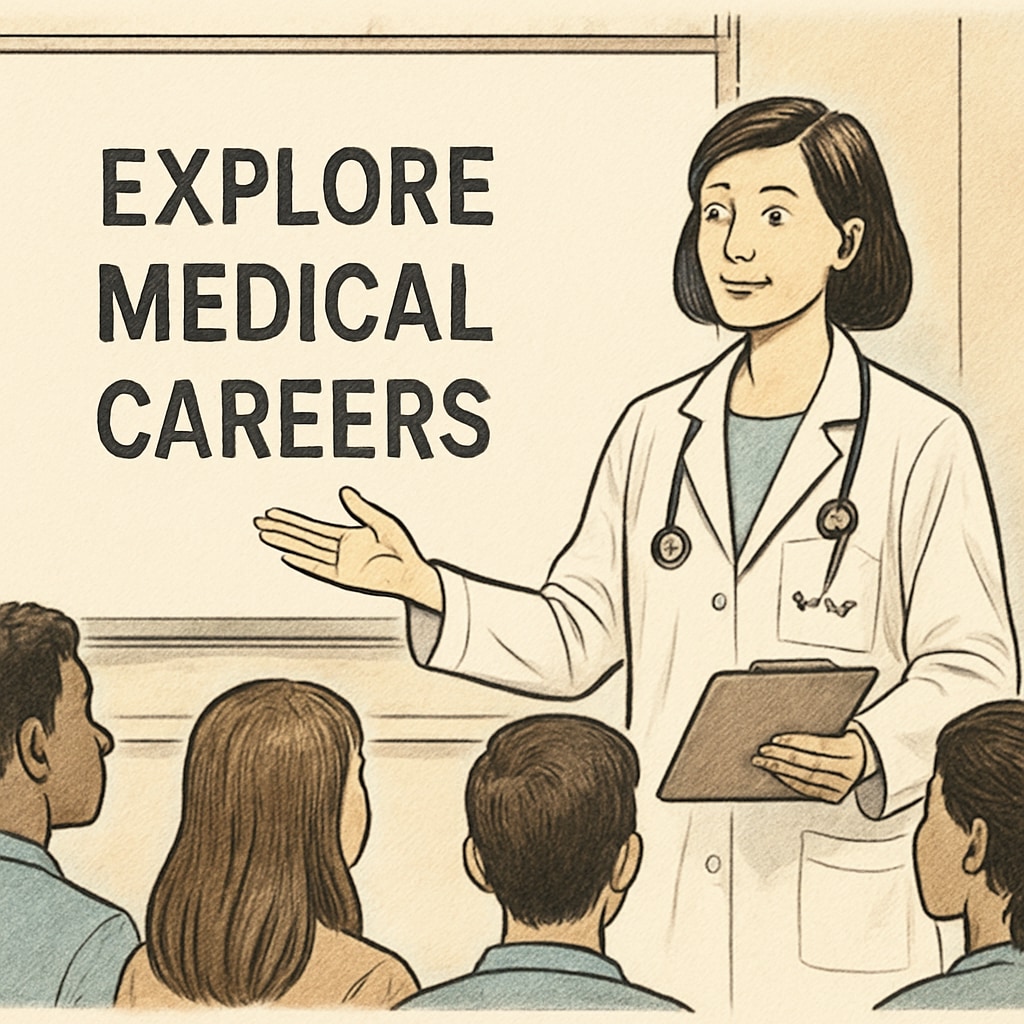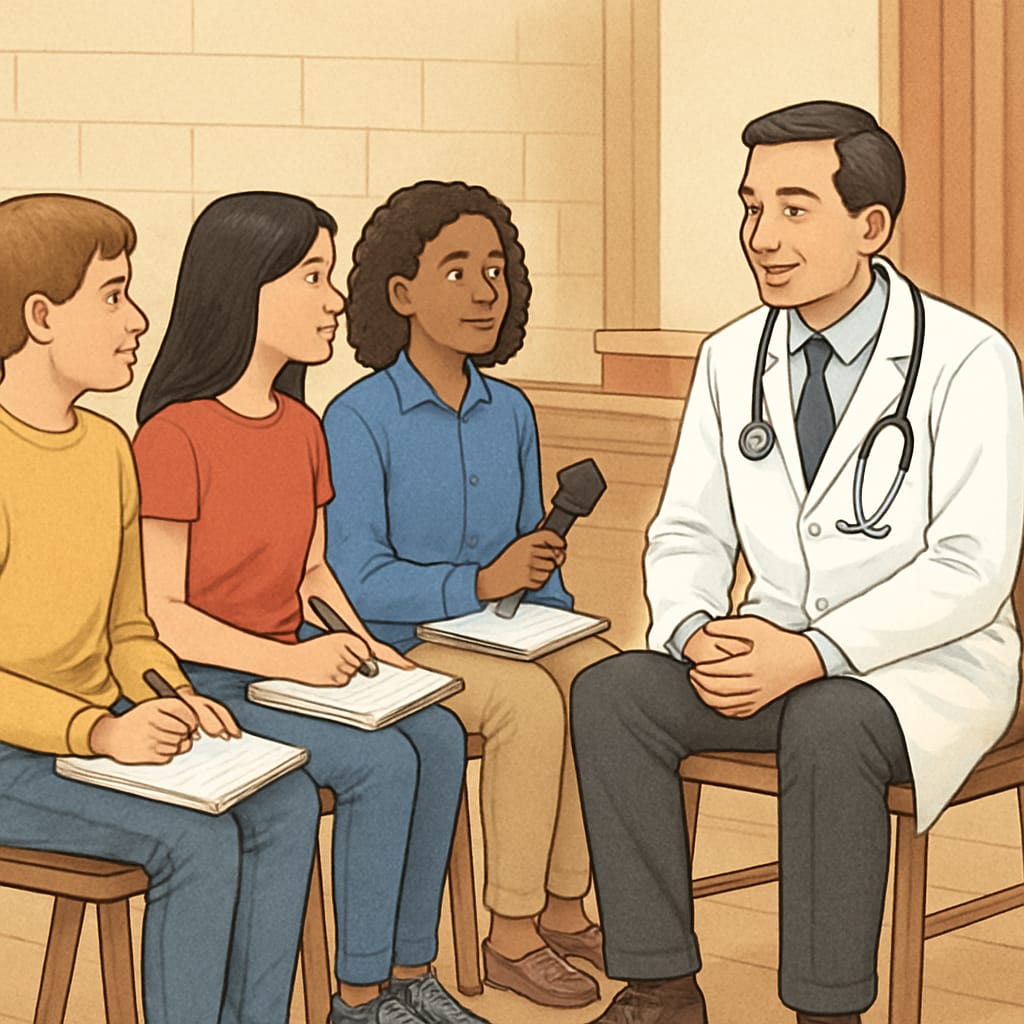Incorporating discussions about medical careers, school projects, and interview questions into K12 education is an essential aspect of preparing students for their future. These activities not only expose students to a wide range of professional opportunities but also help them develop critical thinking and interpersonal skills that are invaluable for lifelong success. Structured career interviews, particularly with professionals in the medical field, provide a unique opportunity for students to understand the realities of the profession and equip themselves with the tools needed to make informed decisions about their future endeavors.
Why Early Exposure to Medical Careers Matters
Introducing students to medical professions during their formative years fosters curiosity and encourages career exploration. The medical field offers diverse opportunities, from surgery and general practice to medical research and public health. By engaging with healthcare professionals through interviews, students can gain firsthand insights into the rewards and challenges of these roles.
For example, a student aspiring to become a pediatrician might benefit from hearing directly from a practitioner about the nuances of working with children and families. Such conversations allow students to assess whether their interests align with the realities of the profession. Additionally, early exposure can spark interest in STEM (Science, Technology, Engineering, and Mathematics) subjects, which are foundational for medical careers.

The Educational Benefits of Structured Career Interviews
Structured career interviews are more than just conversations; they are interactive learning experiences. These interviews provide students with the following benefits:
- Realistic Career Insights: Students learn about day-to-day responsibilities, educational pathways, and industry challenges directly from professionals.
- Critical Thinking Development: Preparing and asking thoughtful questions encourages analytical thinking and problem-solving.
- Enhanced Communication Skills: Engaging with professionals helps students practice effective communication, a key skill for any career.
In addition, these dialogues help bridge the gap between theoretical education and practical application. They also provide an opportunity for students to clarify misconceptions, such as the idea that all medical professionals work in hospitals, when in reality many work in research labs, community health initiatives, or private practices.

How Schools Can Facilitate Medical Career Interviews
Schools play a pivotal role in organizing career exploration activities. For medical careers, this could involve inviting guest speakers, setting up virtual interviews, or incorporating career exploration tasks into science classes. Structured activities can include:
- Guest Lectures: Professionals from various medical fields can share their experiences and answer student questions.
- Panel Discussions: A group of healthcare workers can discuss different roles within the industry, providing a broader perspective.
- Research Projects: Students can investigate specific medical careers and present their findings to classmates.
Additionally, schools can collaborate with local hospitals, clinics, and universities to arrange hands-on experiences, such as shadowing opportunities or lab tours. These initiatives not only enrich students’ understanding but also help build networks that could benefit them in the future.
Key Questions to Ask During Medical Career Interviews
To maximize the impact of career interviews, students should prepare thoughtful questions. Some examples include:
- What inspired you to choose a career in medicine?
- What are the most rewarding and challenging aspects of your job?
- What educational path did you take to reach your current position?
- How do you balance work with personal life, given the demands of your profession?
- What advice would you give to someone considering this career?
These questions not only help students gather valuable information but also encourage professionals to reflect on their journeys, making the conversation mutually enriching.
Conclusion: Building a Bridge Between Education and Career
Engaging students in discussions about medical careers, school projects, and interview questions is a vital step in helping them navigate their future. Structured career interviews offer unique insights, foster critical skills, and inspire informed decision-making. As schools continue to explore innovative ways to integrate career exploration into their curricula, the emphasis on professions like medicine ensures students are well-prepared to pursue meaningful and impactful careers.
Ultimately, early exposure to medical careers equips students with the knowledge and confidence they need to succeed. By fostering curiosity and providing resources, schools can empower the next generation of healthcare professionals to make a difference in the world.


